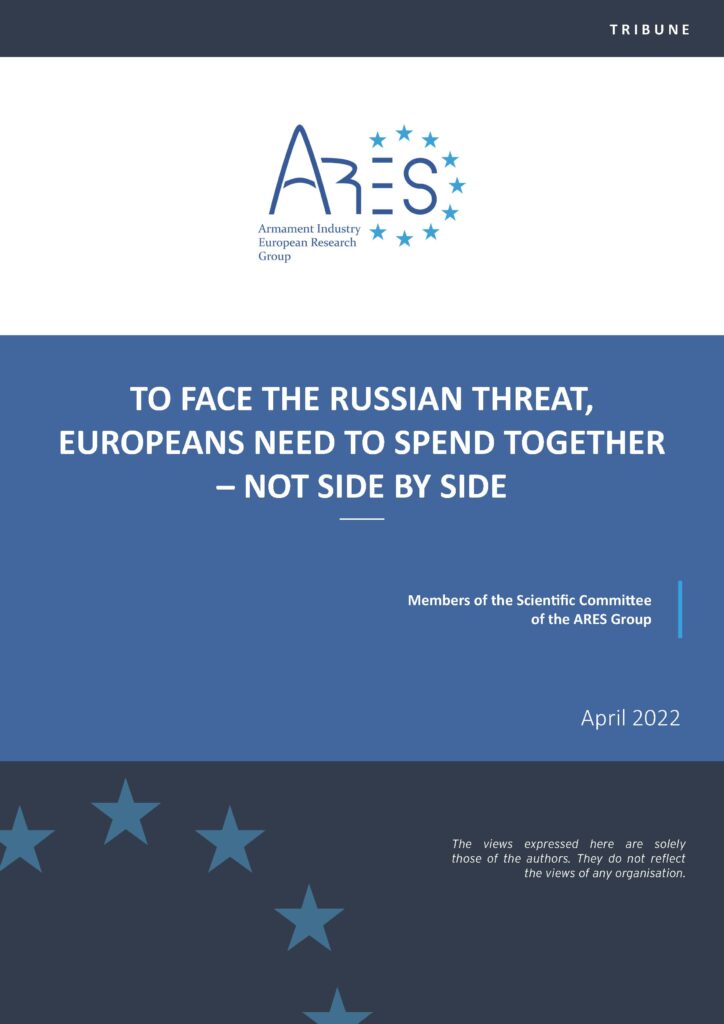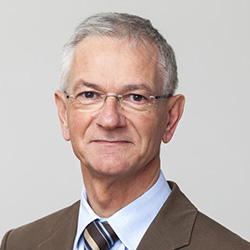Notes / Ares Group - The Armament Industry European Research Group
19 April 2022
To face the Russian threat, Europeans need to spend together – not side by side

War has returned to Europe. Vladimir Putin’s invasions of Ukraine have forced Europeans to
acknowledge both that war is no longer a thing of the 20th century, and that the 21st century
does not let it happen only to other people.
Spurred on by public opinion, the continent’s leaders have reacted in turn by pledging to redress their comparative military weakness. Germany has announced a €100 billion fund dedicated to defence acquisitions and promised to make good on its commitment to spend
2% of its gross domestic product (GDP) on defence.
Since 21 February, Belgium, Estonia, Latvia, Lithuania, the Netherlands, Norway, Poland, Romania, Sweden, Spain and Italy have announced plans to raise defence spending to at least 2% of their GDP.
After decades of chronic under-investment, which Russia’s previous attack on Ukraine in 2014 had started reversing, Europeans appear to have recognised that credible means of guaranteeing the security of their own citizens are a necessary precondition for protecting both Europe and the transatlantic relationship.
Counterintuitively, however, this sudden increase in defence budgets may not reinforce Europe’s collective ability to respond to military aggression. This is because Europeans in both the EU and NATO cannot be content with spending more on their militaries – they must also learn to spend much better.
In the medias :
- Read on Euractiv (EN)
- Read on Les Echos (FR)
- Read on The Elcano Royal Institute (ES)










